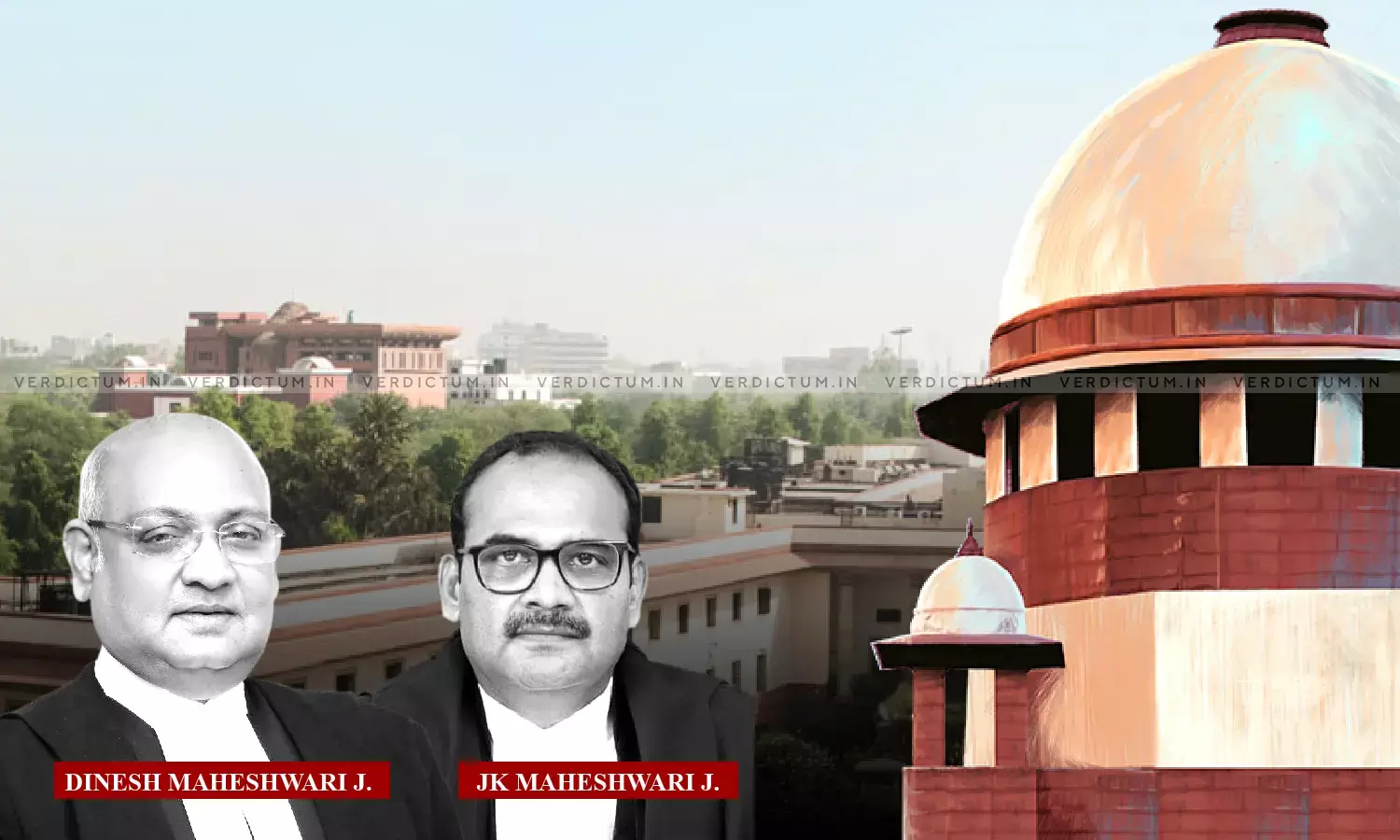Maharashtra Municipal Corporation Act - Standing Committee Is Dissolved Upon Completion Of Term Of Municipal Corporation - SC

A Supreme Court Bench of Justice Dinesh Maheshwari and Justice JK Maheshwari held that the Standing Committee of a Municipal Corporation would be dissolved when the term of the Corporation comes to an end. To that end, the Court held that "end of the tenure of Corporation has its consequential effect of the end of the term of the office of the Councillor; and when no person including the present appellant could be said to be holding the office of Councillor after end of the term of the Corporation, existence of any Standing Committee thereafter, is simply out of question."
Counsel VD Khanna appeared on behalf of the Appellant before the Court
In this case, the term of the Pune Municipal Corporation was ending, and the Government appointed an Administrator, as it was informed that it would not be possible to conduct general elections for the Constitution of a new Municipal Corporation.
The Appellant submitted that he had been duly elected as Chairman of the Standing Committee. He contended that irrespective of the appointment of a new Administrator by the Government, the Standing Committee should remain in existence until the constitution of a new Standing Committee after the general elections. It was further contended that the order issued by the Government did not bar the Standing Committee from functioning in accordance with the provisions of the Maharashtra Municipal Corporations Act, 1949.
His representation was held inconsistent with the law by the Government, and his subsequent petition before the High Court was dismissed.
Aggrieved, the Appellant approached the Supreme Court.
The Supreme Court also found that the appeal was devoid of any substance and deserved to be dismissed. In that context, the Court said that "When no person could be said to be holding the office of the Councillor after completion of the term in view of the mandate of Sections 6 and 6A of the Act of 1949, it follows as a necessary corollary that the Standing Committee stands dissolved along with the completion of the term of the Corporation."
The Court further noted that "The proviso to sub-section (3) of Section 20 of the Act of 1949 essentially comes in operation only in the eventuality when there are existing members of the Standing Committee in office when general elections are held and they are to retire on the election of a new Committee, i.e., at the first meeting of the Corporation after general elections. The proviso cannot be read to mean that notwithstanding the expiration of the duration of a Corporation and thereby, termination of the term of office of the Councillors, there could still be any Standing Committee in existence. It gets perforce iterated that the Standing Committee stands dissolved along with the completion of the term of the Corporation."
Holding that the arguments presented by the Appellant did not further the case of the Appellant, the Supreme Court dismissed the appeal.
Cause Title: Hemant Narayan Rasne vs Commissioner and Administrator of Pune Municipal Corporation
Click here to read/download the Judgment

